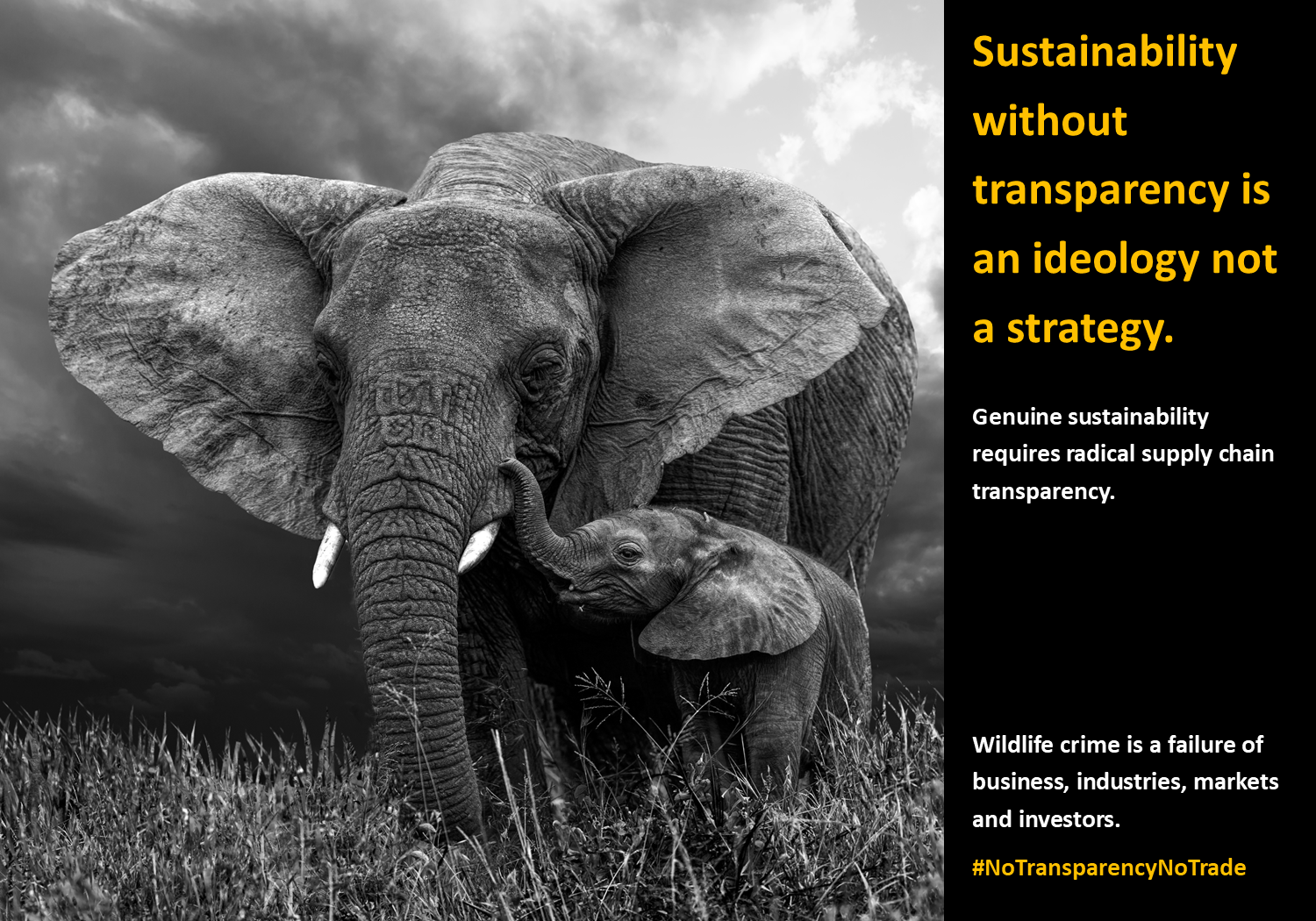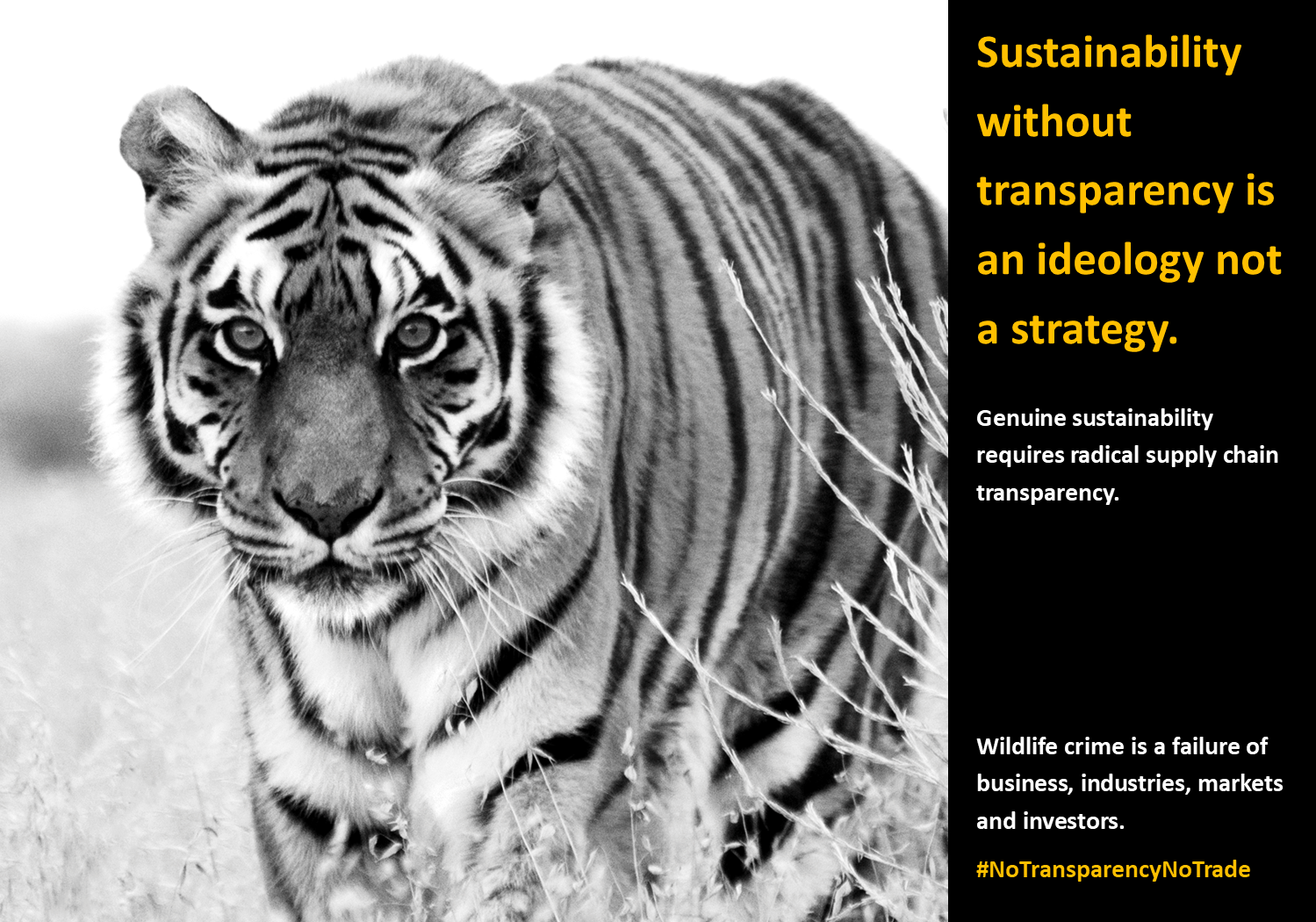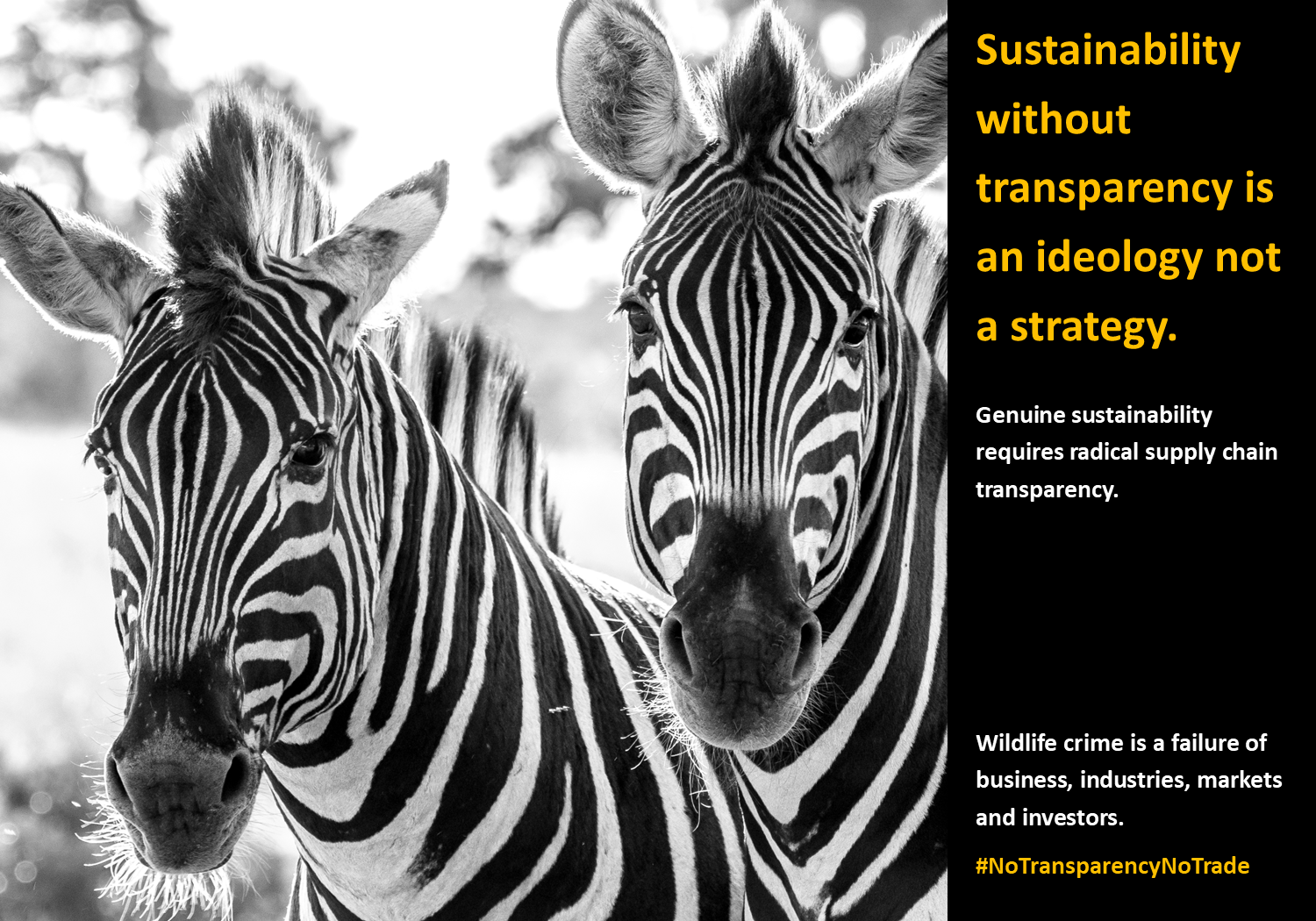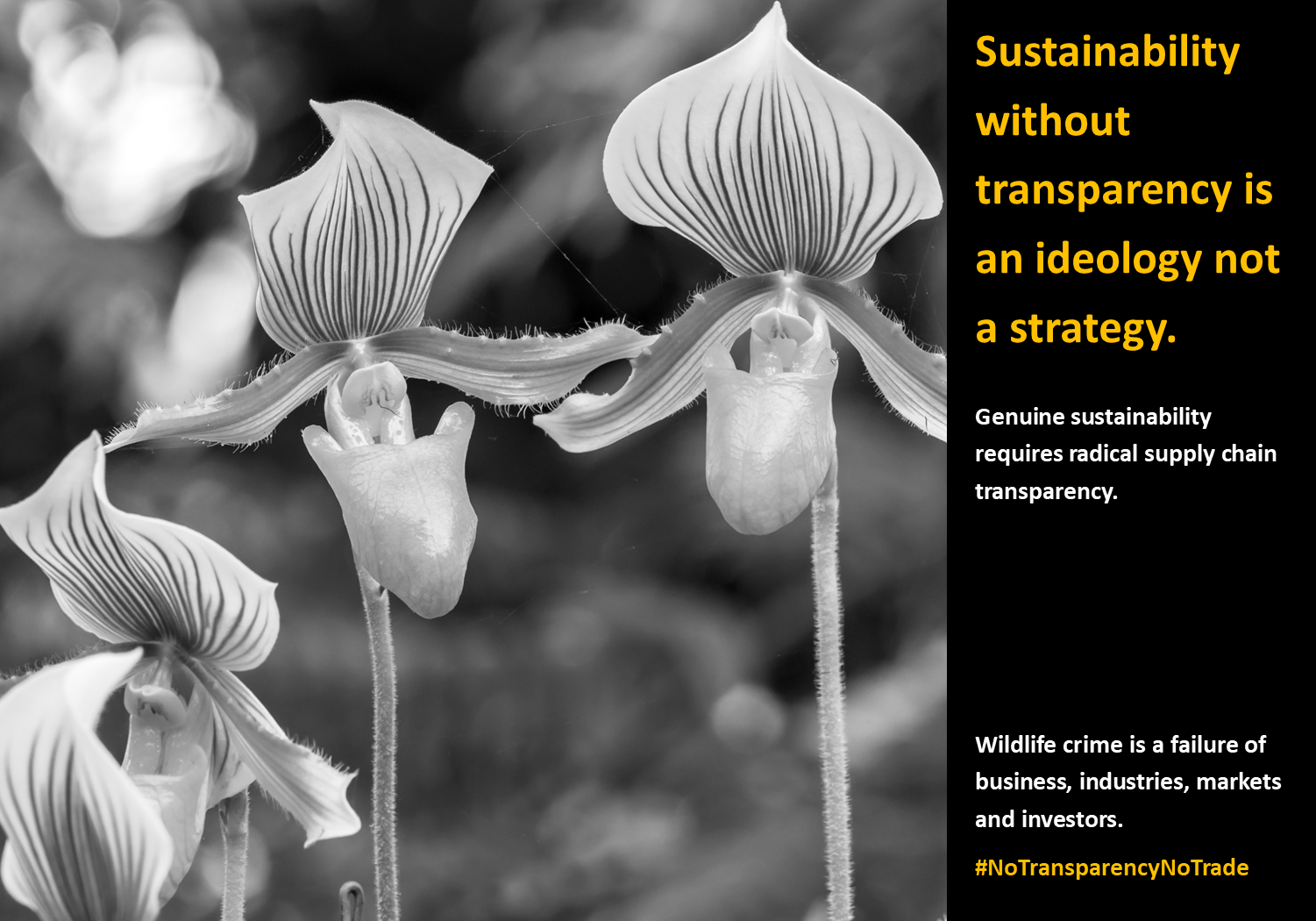Campaign Summary
Wildlife and Timber Crime Is A Failure Of Business, Industry, Markets and Investors
Over the last 30 years, talk about sustainability has increased, bringing with it a growing pile of glossy sustainability reports. But we are further from sustainability in extracting biomass from nature than ever before.
While the conservation sector focuses on poaching and poverty alleviation, concentrating its efforts on the least powerful groups in the supply chain, the failures of powerful individuals, business and commercial institutions are missed, ignored or clinically sidestepped. These groups have driven up the desire for endangered and exotic species for profit. In the main exotic and endangered species are used to manufacture non-essential products and services for the luxury sectors; fulfilling luxury lifestyle choices.

Most of the glossy sustainability reports, published by companies, highlight that supply chain transparency is critical to ensuring sustainability, yet very little has been invested into creating the necessary levels of traceability in the trade of endangered species. Without transparency and accountability in the whole supply chain, from the raw materials end to intermediate and final stage manufacturing, there can be no proof of sustainability.
The legal trade in species has been found to be a key driver of population decline and the extinction crisis. The regulator of the trade in endangered species, CITES, was launched in 1975, on the premise that creating a legal, global, sustainable trade was the strategy to protect species well into the future. This regulator has failed this key objective. CITES’ mechanism for keeping track of what gets traded is so obsolete and that trade data it does collect are worse than useless – they cannot be reconciled with customs information or the UN Comtrade database. It is so easy to launder illegal product into the legal supply chain, that in 2018 the illegal trade in endangered species was estimated, by the World Customs Organisation, to be worth as much as US$258 billion annually; in the region of 80% of the value of the legal trade and again a clear indicator of regulatory failure.
This failure of supply chain management, enabling industrial scale wildlife and timber crime, represents a failure of business, industry, markets and investors. It is time to demand that all businesses, including personal luxury (clothing, accessories, Jewellery, beauty, wellbeing etc), high-end furniture and housewares, luxury hospitality, fine dining and gourmet food and the exotic pet industry, involved in the trade in endangered and exotic species get serious about sustainability.




It is timely that a growing body of research is highlighting the tussle happening between shareholders, customers and company management. Currently, too many shareholders respond negatively to the implementation of sustainable practices in the luxury sector, which they perceive as an identity mismatch with what the industry represents. This mismatch in expectations and the fact that shareholders have a very powerful influence over management actions could be the reason for the research findings, which showed how little real action is being taken on sustainability. Investigating 80 luxury goods manufacturers, listed on the New York Stock Exchange, the researchers found a total of just 289 announcements about implementing sustainable practices in the Wall Street Journal between 1990 and 2019. The trend is rising, but the 168 announcements in the last decade (2010-2019) translate to a very unimpressive 2 announcements, per company, per decade! There were other announcements which were discarded by the research, for example these included 367 sustainability announcements that were simply a discussion on sustainability, but not linked to the company actually adopting any sustainable practice. The possible conclusion being, this ‘noise without substance’ is simply a type of marketing exercise to augment the already huge advertising budgets, which are a key pillar of the luxury sector anyway.
Sustainability without transparency is an ideology not a strategy. Genuine sustainability requires radical supply chain transparency. The first step to supply chain transparency needed, so the world can finally get an accurate picture of the real scale of the trade in endangered species, is to invest in the modernisation of the regulator, CITES; and businesses need to tag and trace all shipments of CITES listed species as a minimum.
If businesses, industries and investors won’t commit and contribute to this minimum step, then it is time to say, no more greenwashing – No Transparency, To Trade.















Nature Needs More’s Debunking Sustainable Use Report
As a result of the lack of supply chain transparency, which in turn means there is no proof of sustainability in the trade of endangered and exotic species, in 2020 Nature Needs More published a report titled Debunking Sustainable Use. In this report we show that the current trade does not meet the minimum requirements for transparency and the information collected is of such poor quality and so full of data gaps, that any claim of sustainability is not just questionable, but ridiculous.
We believe that any of the stakeholders – business, industry groups, investors, government, IGOs or conservation NGOs – who want the sustainable use model to remain must commit to validating it. Radical transparency is the first step, until trade is transparent there is no proof of sustainability; it remains an ideology based on magical thinking.
